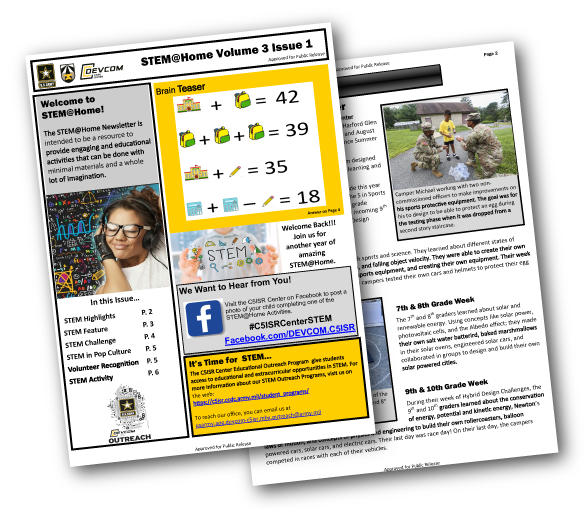
Parent Connection
November 2023 Issue
Upcoming Parent Academy Event - Mark Your Calendar!
When: Wednesday, November 15, 2023, 12:00-1:00 p.m.
Where: Online (Zoom)
Register: http://cookcenter.info/Nov15Harford
October Lunch & Learn Video Now Available
Magnet Deadline Coming Soon!
Real Talk: Middle School Matters
In this Real Talk, Mary Beth Stapleton talks with Natalie Holloway, Director of Middle School Innovation, about the importance of the middle school years and the work her office is leading to transform HCPS middle schools.
Real Talk: Early Childhood Literacy
In this episode, Mary Beth talks with Kathy Griffin, Coordinator of Early Childhood Education, about how parents can help their child(ren) learn to read. In addition, she talks with Jennifer Brosh, Early Childhood Teacher Specialist, about how to understand progress reports and how to best support our youngest learners at home.
How to Help Support Reading at Home With our Youngest Learners
Phonemic Awareness
What is phonemic awareness? Phonemic awareness is the ability to hear, identify, move or change sounds, called phonemes, in spoken words. This is one of the best predictors of a student’s ability to read fluently.
You can support your child’s literacy development at home through phonemic awareness activities. Here are some ideas!
Rhyming at home:
- Read nursery rhymes or rhyming books.
- Play oral games like What’s Cooking in the Kitchen?
- Play rhyme match games with picture cards. Increase difficulty.
- Say a word, have your child tell you if it rhymes. Increase difficulty.
Practice syllables at home:
- Clap/count the syllables in family members names.
- Use Legos to build/count the syllables in words.
- Play I Spy something with two syllables, etc.
- Smash playdough blobs to count the syllables in words.
10 Things to Do When Reading Books With Your Child
Before Reading
1. Have your child look at the front cover and describe the illustration or photograph.
2. Each of you can make a prediction about what will happen in the story.
3. Review the parts of a book or other concepts of print (i.e. front, back, page, title, author, identify a sentence, where the story starts, where the story ends, etc.).
During Reading
4. Have your child look for high frequency words while you are reading the story. (ie. We, I can see, you…)5. Your child can track the words using his/her finger or a pointer as you read.
6. Encourage your child to sound out simple unfamiliar words.
After Reading
7. After reading, have your child draw a picture of his/her favorite part of the story.8. Have your child retell the story to you in his/her own words focusing on the beginning, middle, and end of the story.
9. Have your child name the characters in the story and where the story took place.
10. When reading non-fiction text, have your child recall facts from the book.
Harford County Special Education Citizen Advisory Committee Meeting
Click here for the Zoom Registration Link
The meeting will also be recorded.
Questions? Please reach out to harfordcountysecac@gmail.com.
Harford County Public Library Events
Community Partner Highlight
C5ISR Center
Looking for a fun activity? Check out the latest issue of the STEM@Home Newsletter from our friends at US Army Combat Capabilities Development Command C5ISR Center.
The newsletter is geared for kids grades K-12. It offers engaging and educational activities that can be done with minimal materials and a whole lot of imagination. Content includes:
- C5ISR Center Employee Feature
- STEM Activity Challenge
- STEM in the News
- STEM Experiment
For more issues of the STEM@Home Newsletter, visit the link below.
Family Friendly School Award Program
Is your child's school family-friendly? Nominate the school here for a chance to win this month's award!
Congratulations to October's Family Friendly School: Magnolia Middle School!
Top Tip from Mary Beth
Supporting Learning at Home
It’s that time of the school year…The end of the first quarter is November 2, 2023, and the first quarter grades will be available for parents/caregivers on November 17. Report cards can offer you information on how well your child is doing in school. But you also might have questions or concerns and need to know what to do if you are concerned about your child’s progress before it turns into a larger issue.
For example, if your child is having trouble in math, contact the teacher to learn about available support at the school and how you can support him or her at home. Ask your child’s teacher how your child could improve, and what you can do to support the teacher.
If your child’s teacher mentions behavior challenges in their comments, work with your child’s teacher and ask for ideas on how you can support her at home. My children have had both academic and behavior struggles over the years, and many children go through challenges! When I communicated with my children’s teachers, I felt less stress and better prepared to help my children overcome their challenges.
Be sure to continue to make time for learning as a family by:
- Keeping a routine: Do homework part of their daily routine by having a set time for homework and studying.
- Monitoring classwork and homework: Check your child’s progress throughout the week and help your child plan for larger/long-term projects.
- Encouraging learning at home: If your child is interested in learning about space, talk about something in the news or find books at the school library or your local library (HCPL.org) and discuss them together. These interests will probably change over their academic career, and it is exciting to discover more about these new interests together!
- Attending school programs and activities for parents/caregivers: Being present, if you can, at school programs can help both you and your child feel more comfortable and can help you build relationships with your child’s teacher(s). If you are unable to attend, ask to receive the information that was shared during the event.
By supporting your child’s learning at home, you are helping your child to succeed, and helping the teacher to have a successful school year! Remember, parents are children’s first and best teachers!
Mary Beth Stapleton founded the HCPS Parent Academy and has over 30 years experience working on behalf of children and families. Mary Beth and her family live in northern Harford County.
Community Resources
- Harford County Public Library
- Harford County Parks and Recreation
- Boys and Girls Clubs of Harford & Cecil Counties
Additional resources may be found in the Harford County Community Services Resource Guide.
Stay Connected!
Also, bookmark the Parent Academy webpage on hcps.org where all workshops and Real Talks are archived, and where you can find information on other Parent Academy sponsored programs, like Family Friendly Schools.
Parent Connection Archive
HCPS Parent Academy
HCPS parents are students’ first and best teachers.
Mary Beth Stapleton, Manager of Family and Community Partnerships
Lindsay Bilodeau, Innovation Specialist
Email: ParentAcademy@hcps.org
Website: https://www.hcps.org/parents/ParentAcademy/Default.aspx
Location: 102 South Hickory Avenue, Bel Air, MD, USA
Phone: 410-588-5263
Facebook: facebook.com/HCPSParentAcademy












